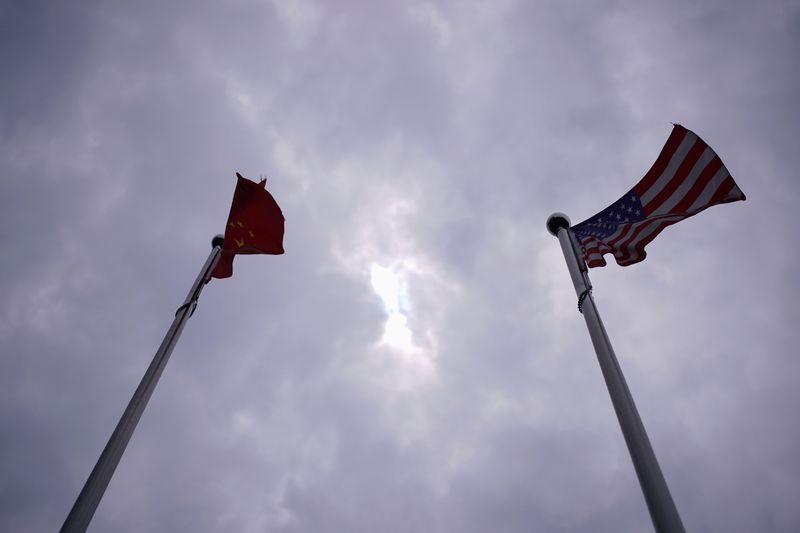By Poppy McPherson and Karen Lema
(Reuters) - Tensions between the United States and China over the South China Sea have erupted into a war of words on social media, in what analysts see as a change in U.S. strategy amid a burgeoning superpower rivalry in Southeast Asia.
After Washington last week hardened its position by explicitly rejecting Chinese maritime claims in the South China Sea, U.S. embassies in the region produced an unprecedented flurry of op-eds and statements criticising Beijing's actions.
China's response was fiery, accusing Washington of "defaming China with untrue words so as to mislead the public" in the region.
"We are a battleground now," Renato de Castro, an analyst with the Albert Del Rosario Institute for Strategic and International Relations in the Philippines, told Reuters by phone. "It will be a long game."
A week ago, U.S. Secretary of State Mike Pompeo called Beijing's claim to about 90% of the potentially energy-rich South China Sea "completely unlawful" and accused Beijing of seeking a "maritime empire".
U.S embassies in Thailand, Malaysia, the Philippines and Cambodia followed up with comments on Facebook (NASDAQ:FB) and in editorials in local news outlets saying that Beijing's actions fitted a pattern of encroachment on others' sovereignty.
The U.S ambassador to Thailand accused Chinese dams of holding back water from the region's Mekong river during a drought last year.
The embassy in Yangon drew parallels between the South China Sea and ways it said China was interfering in Myanmar, citing investments it said could become debt traps, the trafficking of women to China as brides, and the inflow of drugs into the country.
In a swift counterattack, China's ambassador to Thailand accused Washington of "attempting to sow discord between China and other littoral countries".
In a Facebook post that twice referred to the United States as "dirty", China's Myanmar embassy said its agencies abroad were doing "disgusting things" to contain China and showed a "selfish, hypocritical, contemptible, and ugly face".
The statements attracted thousands of regional social media comments, many attacking China while questioning the motives of both countries.
"Thank you USA for doing what is the law requires," commented Chelley Ocampo under the U.S embassy in the Philippines' Facebook post.
After someone wrote on the U.S. embassy in Malaysia's page, "Imperial Yankee Go Home !!!!!!", American diplomats replied, "Are you saying that you are ok with the PRC's bullying tactics in the SCS?"
'CLARIFICATIONS AND REBUTTALS'
Wang Wenbin, China's foreign ministry spokesman, told a news conference in Beijing it was the "U.S. that first published comments attacking and condemning China" and its diplomats were issuing clarifications and rebuttals in response.
The U.S. State Department did not immediately respond to a request for comment on the apparently coordinated social media offensive.
The war of words marks a strident new tack for U.S diplomacy in the region, analysts said.
The U.S. statements aimed to tie the South China Sea to local concerns "to depict Beijing as an unequivocal threat to the sovereignty of the Southeast Asian nations", said Sebastian Strangio, author of an upcoming book on China's regional influence.
Meanwhile, China's response was consistent with "pugnacious 'Wolf-Warrior' diplomacy" since the onset of the coronavirus pandemic, he said, referring to increasingly nationalist Chinese rhetoric.
Strains have become more evident in the South China Sea recently, with U.S. and Chinese navies holding simultaneous exercises in a waterway that China claims over smaller rivals, including the Philippines and Vietnam, on the basis of history.
China "couldn't afford allowing the U.S to make appreciable gains in turning regional opinion", said Collin Koh Swee Lean, a research fellow at the Rajaratnam School of International Studies in Singapore.

"At least some of the Southeast Asian governments... may secretly, if not publicly, welcome the latest Pompeo statement and thereby possibly be emboldened to resist its moves in the disputed waters."